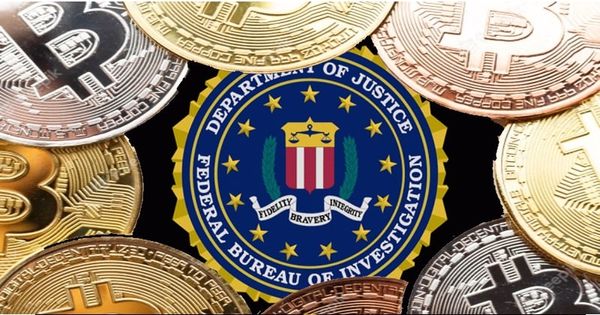FBI warns hackers are targeting cryptocurrency wallets and exchanges

The FBI has sounded an alert amongst owners of cryptocurrency, digital currency exchanges, and cryptocurrency payment platforms that their virtual riches are being actively targeted by malicious hackers.
As Bleeping Computer reports, the FBI has warned those who hold or handle large amounts of cryptocurrency that cybercriminals are using a variety of methods in their attempts to steal fortunes.
Techniques used by online criminals to gain access to cryptocurrency riches include SIM-swapping attacks (also known as SIM hijacking or Port Out scams).
These type of scams typically occur where a cellphone operator has been duped into giving a fraudster control over someone else's phone number, with the result that the criminal will receive security-related SMS messages (such as authentication tokens required to log into an account) rather than the account's genuine owner.
SIM-swapping attacks have become such a powerful tool for hackers who wish to seize control of an account that more and more online sites have turned their back on SMS-based authentication and moved to app-based multi-factor authentication instead, or even hardware keys.
In addition, cybercriminals have also impersonated the support staff at cryptocurrency exchanges and payment platforms, duping users over the telephone to hand over credentials or tricking them into allowing malicious remote access code to be run on their computers.
This type of "tech support scam" is far from novel, but historically has most often been successful against the elderly and vulnerable members of society. The cryptocurrency fortunes potentially accessible to malicious hackers has clearly driven fraudsters to widen their net for victims.
Users who receive suspicious communications are advised to contact exchanges and payment platforms directly via their official phone numbers and email addresses, rather than trust unsolicited emails and phone calls blindly.
Meanwhile, companies running the cryptocurrency exchanges and platforms themselves are encouraged to be on the look out for suspicious emails that spoof their address, and monitor the activity of recently-created accounts.
As Bleeping Computer describes, the warning about the attacks was issued by the FBI via a TLP:Green Private Industry Notification (PIN) to selected private sector organisations, but not to the wider public.
Nonetheless, everyone would do well to follow the advice to be wary of unsolicited communications, enable multi-factor authentication where available (preferably not via SMS), and follow best security practices when it comes to choosing strong, unique passwords and keeping PCs malware-free.
tags
Author
Graham Cluley is an award-winning security blogger, researcher and public speaker. He has been working in the computer security industry since the early 1990s.
View all postsRight now Top posts
How to Protect Your WhatsApp from Hackers and Scammers – 8 Key Settings and Best Practices
April 03, 2025
Outpacing Cyberthreats: Bitdefender Together with Scuderia Ferrari HP in 2025
March 12, 2025
Streamjacking Scams On YouTube Leverage CS2 Pro Player Championships to Defraud Gamers
February 20, 2025
How to Identify and Protect Yourself from Gaming Laptop Scams
February 11, 2025
FOLLOW US ON SOCIAL MEDIA
You might also like
Bookmarks








